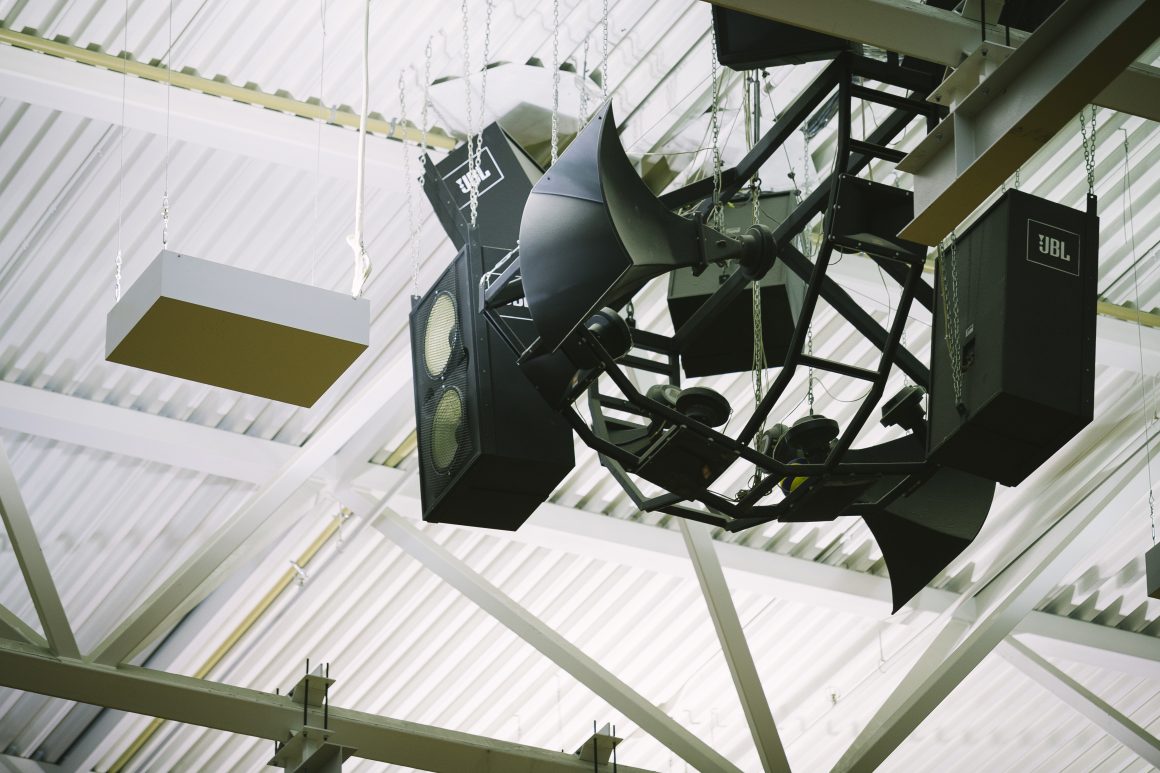
Copyright office looks into use of music on campus
By Scott Strasser, October 18 2016 —
The University of Calgary Copyright Office is looking into the use of music at public events on campus to see if it breaches copyright law.
The U of C copyright committee last met on Oct. 5. One of the meeting’s discussion items was the need for music licensing on campus.
“Most musical works are protected under copyright and streaming services — like most other music sources that individuals use — are intended for personal use only,” U of C provost Dru Marshall said. “In order to play music at public events, a music licence may be required.”
While music is played at a variety of events at the U of C, the Faculty of Kinesiology and Active Living will be points of focus for the Copyright Office’s investigation. This is due to the widespread use of music at Dinos games, the Fitness Centre and aerobics or dance classes in the kinesiology complex.
“The university is continuing to monitor that campus music licensing practices are compliant with copyright legislation,” Marshall said. “This may include seeking appropriate music licensing for any recorded or live music played on campus that is not directly related to course curricula.”
According to Students’ Union vice-president Alicia Lunz, who sits on the university’s copyright committee, the U of C may have to pay retroactive Society of Composers, Authors and Music Publishers of Canada (SOCAN) fees or Re:Sound fees for the Kinesiology faculty’s use of music.
SOCAN is an annual music licensing fee that allows a business or organization to play music without obtaining permission from the music publisher. Similarly, Re:Sound is a music licensing company that aims to obtain compensation for artists and record companies for their performance rights.
“Right now [the university] is waiting for Active Living to poll the numbers of people who attend aerobics classes and Dinos games, [to see] the most cost-effective way of going around Kinesiology and paying the fees for SOCAN and Re:Sound,” Lunz said.
Re:Sound director of licensing Martin Gangnier says the fees are a way to compensate and give credit to the creator of a piece of music.
“If you use a piece of music, no matter the context, whether it be a Dinos game, a fitness event or a nightclub, if you are using recorded music, you have to pay both SOCAN and Re:Sound fees,” he said. “We represent recording artists and record companies, whereas SOCAN represents songwriters and the authors of a song.”
Marshall said the U of C Copyright Office will look into if SOCAN or Re:Sound fees will need to be paid retroactively.
“We’re continuing to monitor our procedures with a view to ensuring that music licenses are being paid where appropriate,” Marshall said. “The Copyright Office can work with you to ensure you have the right licence for your venue and event, which may include royalty-free music.”
The Faculty of Kinesiology provided the following statement on the matter:
“The Faculty of Kinesiology is working with the provost and Copyright Office to ensure our units are compliant with copyright legislation and that we have the right licence for our venues and events.”
